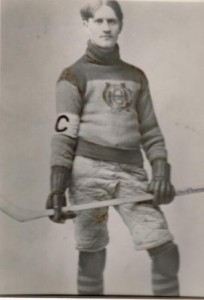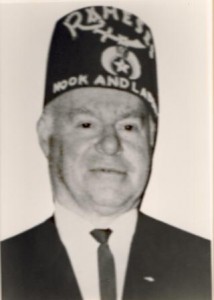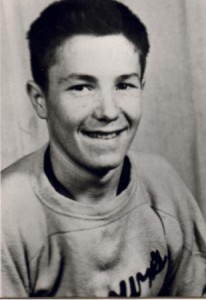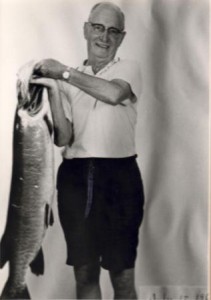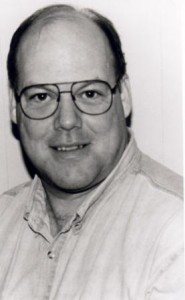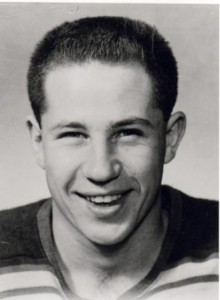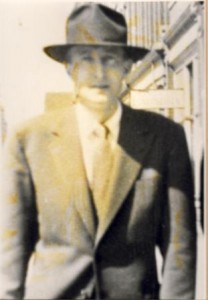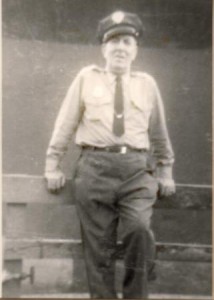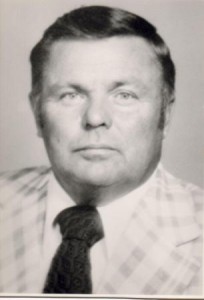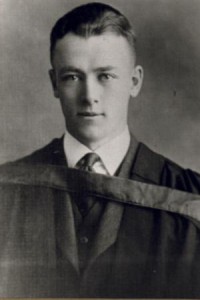 I would have liked to have written the story of Bill McLean while he was still
I would have liked to have written the story of Bill McLean while he was still
with us but he wanted no part of personal publicity.
Bill’s contributions to the development of sport and young athletes in Collingwood
were hidden under a bushel because that’s the way Bill wanted it.
This single incident, one of many, will attest to the true spirit of helping others
that was Bill McLean’s greatest human asset.
About forty-five years ago we were having a hard time assembling a Junior O.H.A. hockey team. The main stumbling block was the lack of cash. We didn’t have enough of that commodity to pay the entrance fee.
A hastily called meeting was attended by six or seven interested citizens. The
interested citizens ignored the poor turn-out and went ahead with the election
of a board of directors.
Bill McLean, who had returned to Collingwood to practice law after an absence of
many years, slipped unannounced into the meeting just before it broke up. He
didn’t even identify himself but sought out he newly elected treasurer- the treasurer without a treasury.
“Would like to help a little” he said, as he slipped a bill into the treasurer’s hand and departed. It was a one hundred-dollar bill. He didn’t even wait for a “thank you” and that was his only donation as the season progressed.
That was only one incident in the life of Bill McLean where he helped without
looking for anything in return-not even acknowledgement.
Born in Barrie in 1896, Bill taught public school in Collingwood for two years before moving out to Weyburn, Saskatchewan. He played centre for the Presbyterian Theolgian College team in Saskatchewan in 1922 and 1923 but his crowing athletic achievement came in 1923 when he coached the University of Saskatchewan Senior Hockey Team to the Allan Cup finals. This team lost by a single goal in a two-game series to the famed Toronto Granites, Olympic winners in National Hockey Hall of Fame in Toronto.
A year later he coached the Regina girls’ hockey club to the provincial title.
An accomplished marksman he captained the University of Saskatchewan rifle team for two years.
Mr. McLean was admitted to the bar in 1925. He practiced in Indian Head, Saskatchewan, and Barrie, before returning to Collingwood in 1944.
From 1944 until his death in 1977, he supported Collingwood hockey and ball teams in his own quiet way and during that time became involved in harness racing as a
driver and attained notable success with Billie Direct and Bunty Gratton.
Bill McLean, gentleman, scholar and sportsman, has well earned his niche in
Collingwood’s Sports Hall of Fame.

